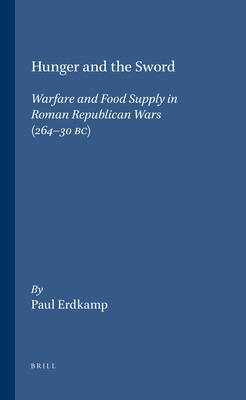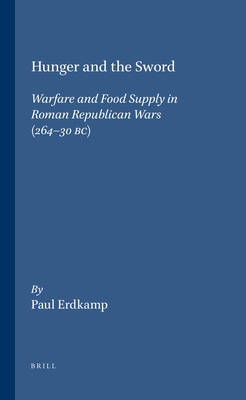
- Afhalen na 1 uur in een winkel met voorraad
- Gratis thuislevering in België vanaf € 30
- Ruim aanbod met 7 miljoen producten
- Afhalen na 1 uur in een winkel met voorraad
- Gratis thuislevering in België vanaf € 30
- Ruim aanbod met 7 miljoen producten
Zoeken
€ 180,45
+ 360 punten
Omschrijving
Roman wars, like those of later times, took place in a landscape - a landscape not only consisting of mountains, plains and rivers, but also of men tilling the soil, travelling across sea or land, or employing other means in their struggle for survival (and even happiness). This book undertakes to examine Roman wars in this context of the natural and human environment. Roman warfare is generally examined from the vierpoint of the ancient authors on whose narratives our understanding depends. As a consequence, however, Roman wars seem to have become events that took place on the pages of a book rather than in the environment of the Mediterranean world. The way Roman wars were fought was determined by the geography and climate of the Mediterranean peninsulas, by the ecological restraints on agriculture and transport, and by the economic and social structures of the society of which the armies were a significant part. This book relates warfare to one of the main conditions of survival: it examines on the one hand the food supply of the many thousands that manned the Roman armies, and on the other the impact of war on the food supply of those people not waging war.
Specificaties
Betrokkenen
- Auteur(s):
- Uitgeverij:
Inhoud
- Aantal bladzijden:
- 332
- Taal:
- Engels
- Reeks:
- Reeksnummer:
- nr. 20
Eigenschappen
- Productcode (EAN):
- 9789050636087
- Verschijningsdatum:
- 1/01/1998
- Uitvoering:
- Hardcover
- Formaat:
- Genaaid
- Afmetingen:
- 160 mm x 234 mm
- Gewicht:
- 589 g

Alleen bij Standaard Boekhandel
+ 360 punten op je klantenkaart van Standaard Boekhandel
Beoordelingen
We publiceren alleen reviews die voldoen aan de voorwaarden voor reviews. Bekijk onze voorwaarden voor reviews.











